Germany National Team
Every four years, national pride and footie artistry reach peak levels in a global dance of no small magnitude, the World Cup is here again. This summer, all eyes will be focused on Russia as the time to crown a champion draws ever near. With the sport’s best and brightest from 32 lucky nations on display, it’s time to take a look at what each squad brings to the table. We will dive deep beyond the usual team sheets, we’ll scratch beyond the player names, and get you ready to be the smartest on the couch/bar stool for Russia 2018.
Germany
Qualifying Record (W-D-L) 10-0-0
Current FIFA World Ranking (May 2018) – 1st
World Cup 2014 Finish – World Champion
Russia 2018 Group F (Germany, Mexico, Sweden, South Korea)
Formation – 4-2-3-1/3-4-2-1
Strengths – Title-winning coach, talented and deep roster
Weaknesses – major turnover from Brazil conquest
Major Threats – Tony Kroos, Timo Werner
Many of the individual faces will have changed from the squad that romped through Brazil, but when Germany arrives in Russia to defend their title, they will again be among the heaviest favorites to take the podium in Moscow on July 15th as world champions.
Are you a fan of Die Mannschaft or just really all things Germany? Well get the adidas Germany Jersey now before the tournament starts!
Federation Goal for RUSSIA 2018:
Most nations will make the trip this summer with dreams of a title, but anything short of a fifth star for Germany would necessarily be seen as a disappointment, if not an utter nightmare. Such is the current state surrounding “die Mannschaft” and the DFB. While “they don’t rebuild; they reload” is a bit cliche, the German club system’s support of player development has given the DFB an embarrassment of riches when it comes to selecting a squad. With a solid base of veteran players in crucial positions, Löw was able to use younger players over the last four years to reach the semifinals of EURO 2016, win the Confederations Cup last summer, and cruise to a perfect record in qualification. Gary Lineker’s famous quip about how “at the end, the Germans always win” is not entirely true, but it’s true enough to make everyone view Germany as a true heavyweight in every competition. Russia 2018 will be no exception.
DEFENSE:
Though Löw used a four-man back row exclusively in Brazil and through most of EURO 2016, he has been increasingly using three at back, including throughout their 2017 Confederations Cup conquest. With outside backs like Bayern’s Joshua Kimmich, Köln’s Jonas Hector, and Hertha BSC’s Marvn Plattenhardt having established their value moving freely up and down the flanks and the stable of highly regarded central defenders, the switch seems like a very natural development and one that has helped Germany be even more threatening with their typical possession advantage.
One variable for Germany is Jerome Boateng’s late-April hamstring injury. The Bayern and Germany veteran is not expected to return to full training until close to the start of the World cup, making it unlikely he will be available for the earliest matches. Yet, as we saw four years ago with Bastian Schweinsteiger, Löw is happy to take his favorite players with him in the hopes he’ll get something out of them, whether on or off the pitch. When Boateng is not available to give Löw, he can turn to Niklas Süle, the second of his two favorite FC Bayern central defenders, should he want that instant familiarity. Otherwise, he will have available Chelsea’s Antonio Rüdiger and Borussia Mönchengladbach’s Matthias Ginter, both of whom featured prominently in last summer’s victorious trip to Russia. Jonathan Tah has the build, recent success, and the pedigree, but may be the odd defender out when final cuts are made.
The biggest defensive question, however, will be between the goalposts. All-world keeper Manuel Neuer has not played since mid-September, but will get the chance to convince Löw and goalkeeper trainer Andreas Köpke that he is ready to play, despite the competition deficit. Should Neuer be unable to make his case clear, Germany will be in the incredibly capable hands of Marc-Andre ter Stegen. The heir-apparent to Neuer may not be of the same “sweeper keeper” stylings of Neuer, but has seen plenty of big club matches since joining FC Barcelona and backstopped Germany’s so-called “B-squad” to last summer’s Confederations Cup win.
Fairly or not, whomever stands between the posts will likely be the most-heavily scrutinized player on the pitch for Germany this summer.
MIDFIELD:
Whatever formations or philosophies Löw utilizes in Russia, the anchor of Germany, as it was in Brazil, will be Toni Kroos. The Real Madrid man bosses most of the territory between the two goalkeeper areas and dictates most of what happens there with a high football IQ and the ability to be in complete control while playing at a high pace. Kroos pairs again with Sami Khedira to give Löw 155 caps-worth of experience in central midfield. Khedira is to Juventus what Kroos is to Real, but it’s Kroos who is the true beating heart of the Germany machine when it is working at full capacity.
On the offensive end of the midfield, Mesut Özil should feature prominently for Germany come mid-June, despite a late-season back injury and the political fallout over a photo op. The long-time Arsenal star is among the last classic number tens in the game. His scoring and service capabilities should ease the transition of the striker workload to a much greener collection. Özil’s style may be fading from the broader football world, but Löw has consistently showed he doesn’t prefer to conform to anyone else’s ideas of how things should be done.
Julian Draxler (PSG) will likely see more time for Germany in this tournament than the 14 minutes he played in Brazil. Though just 24-years-old, he has 42 caps for Germany and has even worn the captain’s armband. Russia may also see the long-awaited return of Marco Reus, who missed the 2014 World Cup and 2016 European Championships with injuries sustained shortly before the tournaments. The Dortmund star paired with Bayern’s Thomas Müller can give playmaking Özil two distinctly different and deadly distribution options. With Khedira and Kroos behind them, the eclectic trio can cause issues in the attacking third with confidence.
Leon Goretzka is another emerging top talent who may struggle to see much of the pitch due to squad depth. However, with six goals in his 14 caps to date, it’s clear to see why FC Bayern wanted to pry him away from their closest competition this season and why he should be in the mix this summer. And when Löw wants to shift to a higher gear entirely, Manchester City’s Wunderkind Leroy Sane’s speed and ability comes into play to wreak havoc along the left flank and into the keeper’s area.
STRIKERS:
The question “Where are Germany’s true strikers?” has nagged Germany even since before the last World Cup. With Klose finishing his remarkable career with one last Brazilian hurrah, many questioned what would be Plan B, should his veteran record-setting goal-scorer simply not be enough? Löw backed Klose with attacking-minded midfielders like the aforementioned Müller, winger Andre Schürrle, and the man who scored the game-winner in the finale, Mario Götze. Klose and Germany performed well enough to never allow the striker deficit turn into a legitimate concern.
This year, however, Löw will have both classic strikers AND more positionally fluid young talent from which to choose. Right now, the leading candidate for featured striker has to be Leipzig’s Timo Werner, whose speed and finishing qualities make him as big a threat as any featured in Löw’s time in charge of die Mannschaft. The 22-year-old has seven goals in his first twelve appearances for Germany and shows no sign of slowing. With both Werner and Sane on the pitch, things can get chaotic, in the most-fun way imaginable.
Mario Gomez has long been a Löw favorite and will be in the squad, much to the dismay of the burgeoning pro-Sandro Wagner crowd among Germany supporters. But before anyone dismisses Gomez as little more than Löw’s security blanket, remember that the Stuttgart legend has 31 goals in 73 caps and has a classic striker’s “nose for goal.” But, yes, his selection is a classic Löw move that will drive millions of amateur national-team trainers crazy.
The surprise name among the striker class is Nils Petersen. The SC Freiburg striker was immediately identified by many as a likely pre-tournament cut candidate, but Löw points out that Petersen’s ability to score (19 goals in 37 matches across all competitions this season) regularly for a club that sees a dearth of clear-cut scoring opportunities could make him an ideal “joker” for late-match substitution.
GAME by GAME (v Mexico, v Sweden, v South Korea)
*Keys to Mexico game: Can Mexico repeat the ball dominance (58% possession) they had against Germany in last summer’s Confederations Cup? If so, can they use it to better ends than a 4:1 loss?
Mexico’s youth movement has been improving the overall talent level, which has encouraged trainer Juan Carlos Osorio to play a more-attacking 4-3-3 with plenty of midfield distribution. The problem has been on the defensive end, particularly on the counter. When the two met eleven months ago, Germany’s young squad had little problem moving the ball around and opening Mexico’s defense for terrific opportunities. The biggest danger might be in Germany underestimating their opponent after having had their way with them. Mexico has the talent to make the Germans at least work hard for 90 minutes.
Prediction: Germany has lost just once in eleven matches with Mexico. The title defense starts with a win in a fun-to-watch match.
*Keys to Sweden game: How do you handle a force of nature like Zlatan? Oh, he’s not coming? Well . . . huh truth be told, Sweden has simply been a better squad without their greatest talent because they are, indeed, a true squad rather than a ten-man effort to get the ball to that one guy. Even so, for Sweden to get their first-ever win over Germany would require something special. After all, Germany is unlikely to take it easy as “thanks” for clearing main rival Italy out of the way before the tournament even starts. Under Janne Andersson, Sweden has succeeded through tight organization and an all-for-one approach to defending. Meanwhile, Germany is used to teams wanting to sit back for chances on the counter and have long become adept at finding ways to crack the code. Expect Germany to dominate possession and chances with Kroos and Özil carrying much of the workload while otherwise keeping familiar faces like HSV’s Albin Ekdal in check as he tries to find former HSV striker Marcus Berg and current Leipziger Emil Forsberg. Sweden will otherwise try to keep this one close and take their chances of advancement with their group finale against Mexico.
Prediction: Germany wins what turns out to be a grind of a match.
*Keys to South Korea game: How many resources will Germany dedicate to negating Heung-Min Son, South Korea’s lone legitimate threat? Like Sweden, expect the Koreans to rely on the counter for any offensive chances. The question will be how they make the connection from their defensive end, where they will likely expend most of their energy, to Son in a place where he can offer hope? Since taking charge last summer, trainer Tae-Young Shin has been looking to rebuild South Korea in the image of the 2002 semifinalist, but with a dearth of top-flight club experience in the team, he’s been left wanting. Germany has the skill to navigate the high-energy defending and will likely create many high-percentage chances while conceding few, if any.
Prediction: Germany cruises while padding their goal differential.
Here’s the likely Germany Roster for Russia 2018
GOALKEEPERS (3): Marc-Andre ter Stegen, Manuel Neuer, Bernd Leno
DEFENDERS (8): Jerome Boateng, Mats Hummels, Niklas Süle, Jonas Hector, Joshua Kimmich, Antonio Rüdiger, Marvin Plattenhardt, Matthias Ginter
MIDFIELDERS (10): Toni Kroos, Sami Khedira, Ilkay Gündogan, Mesut Özil, Thomas Müller, Julian Draxler, Leroy Sane, Marco Reus, Leon Goretzka, Sebastian Rudy
FORWARDS (2): Timo Werner, Mario Gomez
Piece by Randall Hauk, sage on all things German Football, super Koln fan, kingpin at American Geissbock.


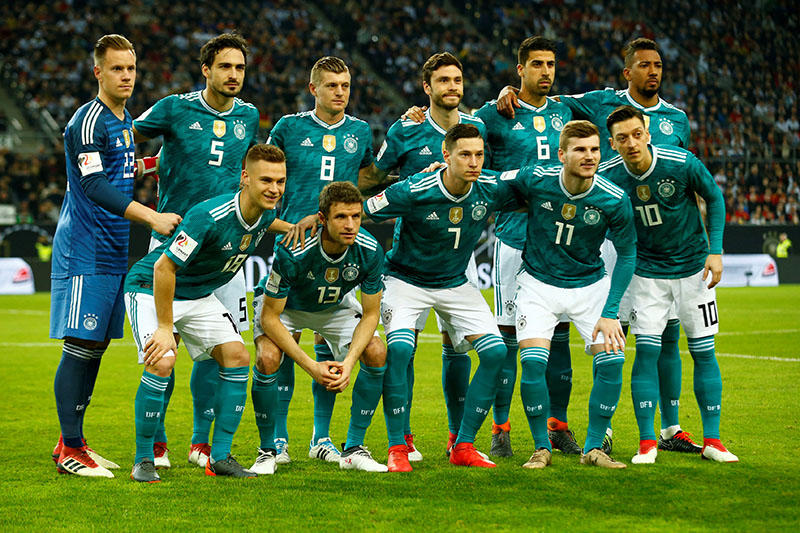
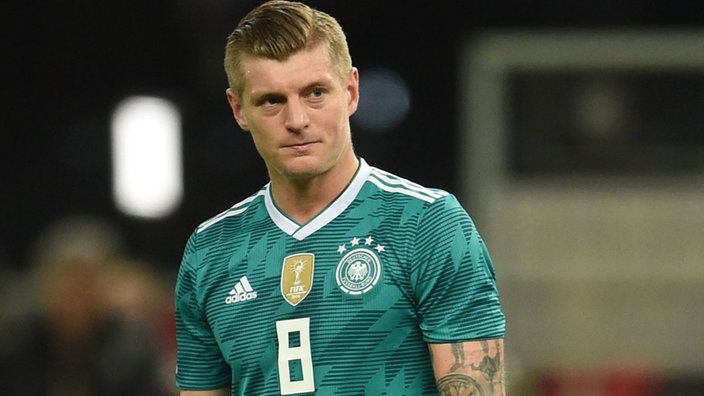
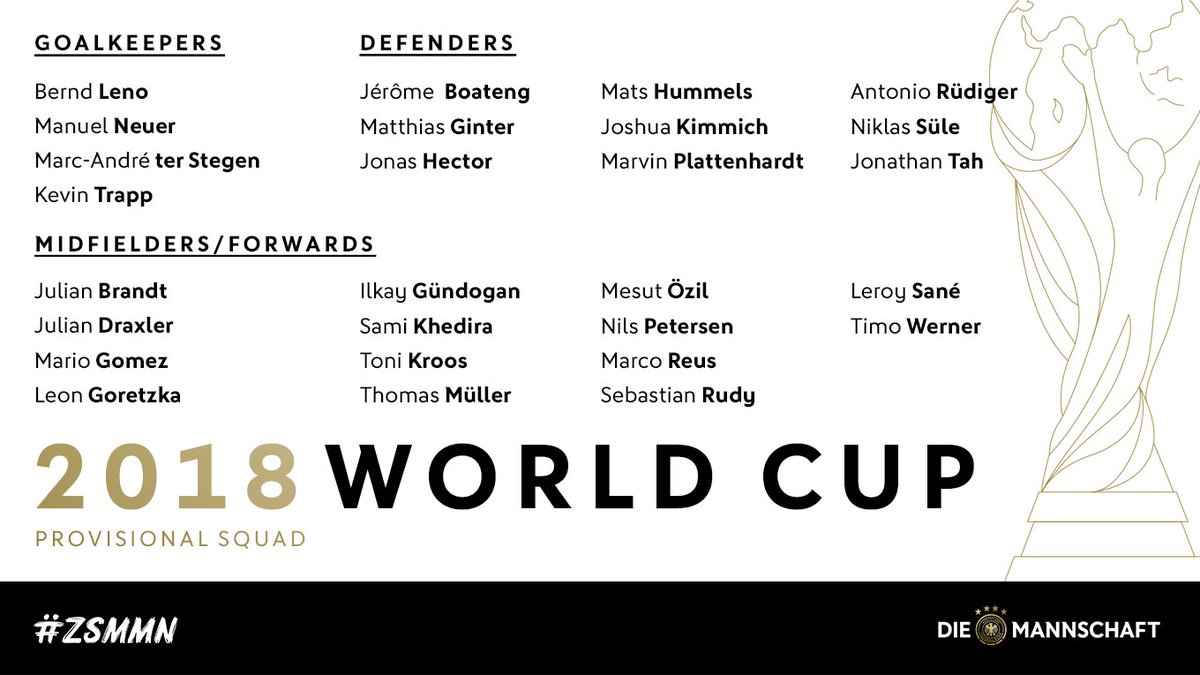
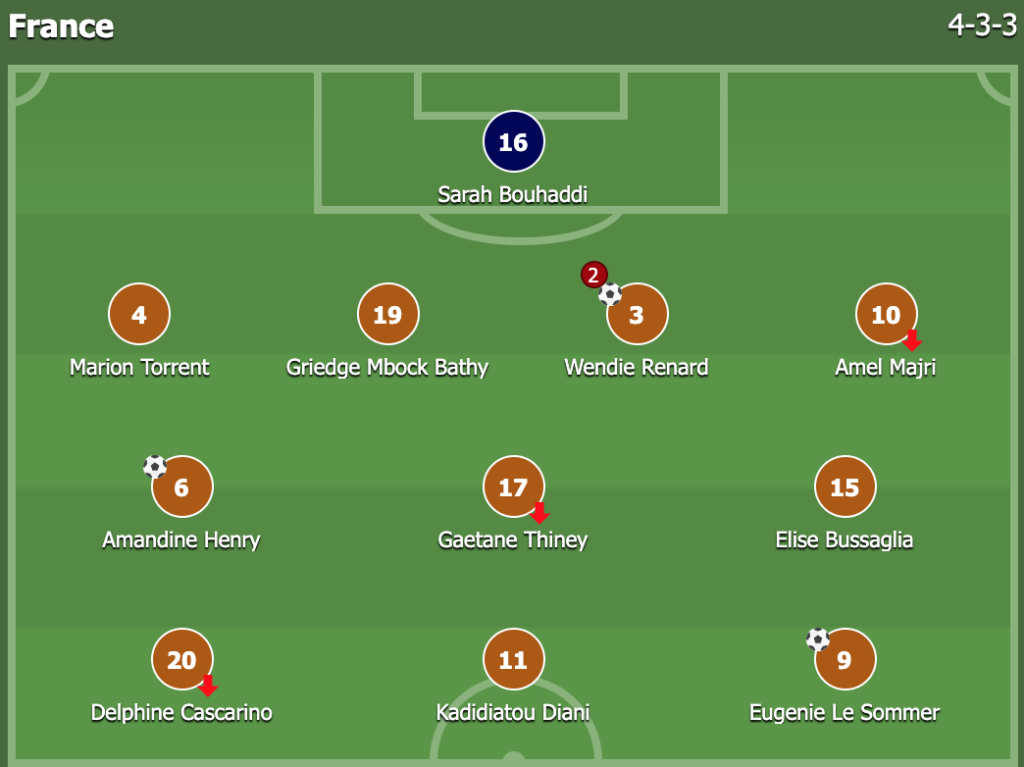

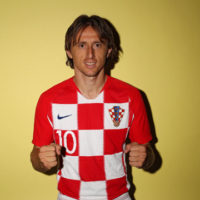
No Comments